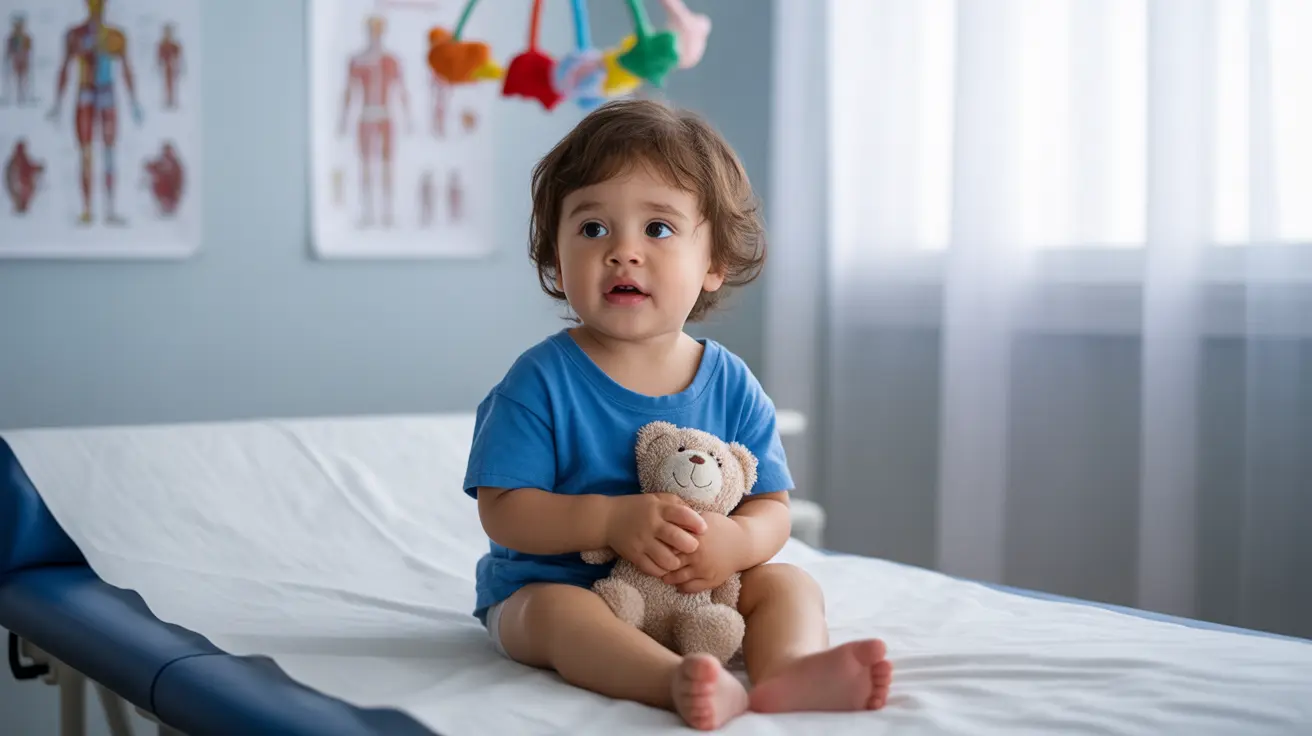When your child is diagnosed with pneumonia, understanding how the illness progresses through its various stages can help you provide better care and know what to expect. Pneumonia in children can be particularly concerning for parents, as symptoms may develop differently than in adults and can vary based on the child's age.
This comprehensive guide will walk you through the stages of pneumonia in children, helping you recognize important signs and symptoms while providing essential information about treatment and recovery.
Early Stage Symptoms of Pneumonia in Children
The initial stage of pneumonia in children often presents with symptoms that may resemble a common cold or flu. During this phase, parents should watch for:
- Fever (usually 101°F or higher)
- Cough, which may start dry
- Decreased appetite
- Fatigue or reduced activity level
- Rapid breathing
In babies and toddlers, early symptoms might also include:
- Difficulty feeding or reduced feeding
- Irritability
- Grunting during breathing
- Nasal flaring
Progressive Stage Development
As pneumonia progresses to its intermediate stage, symptoms typically become more pronounced. Parents may notice:
- Worsening cough with mucus production
- Increased difficulty breathing
- Chest pain or discomfort
- Higher fever
- Decreased energy levels
Advanced Stage Indicators
In the advanced stage of pneumonia, children may experience:
- Severe breathing difficulties
- Bluish tint around lips or fingernails
- Persistent high fever
- Significant chest pain
- Severe fatigue or lethargy
Treatment Approaches Based on Stage
Treatment varies depending on the stage of pneumonia and its severity. Early intervention is crucial for the best outcomes.
Mild Cases
For early-stage or mild pneumonia, treatment typically includes:
- Oral antibiotics (if bacterial)
- Rest and increased fluids
- Over-the-counter fever reducers
- Humidity therapy
Moderate to Severe Cases
More advanced stages may require:
- Hospitalization
- Intravenous antibiotics
- Oxygen therapy
- Breathing treatments
- Close monitoring
Recovery and Support
Recovery from pneumonia in children typically takes 1-2 weeks, though this can vary based on severity and the child's overall health. During recovery:
- Ensure plenty of rest
- Maintain good hydration
- Follow medication schedules strictly
- Monitor breathing and temperature
- Keep follow-up appointments
Prevention Strategies
Taking preventive measures can help reduce your child's risk of developing pneumonia:
- Keep vaccinations up to date
- Practice good hand hygiene
- Ensure adequate rest and nutrition
- Avoid exposure to secondhand smoke
- Maintain regular wellness check-ups
Frequently Asked Questions
- What are the signs and symptoms of pneumonia in a child, and how are they different for babies versus older kids?
In older children, common signs include high fever, cough, chest pain, and difficulty breathing. Babies may show different symptoms such as poor feeding, irritability, grunting while breathing, and may not show obvious signs of chest infection. They're more likely to show general signs of illness like lethargy and poor feeding.
- How does pneumonia progress through its stages in children, and what should parents look out for at each stage?
Pneumonia typically progresses from mild cold-like symptoms to more severe respiratory issues. Early stages show fever and cough, middle stages present with increased breathing difficulty and mucus production, and advanced stages may include severe breathing problems and lethargy. Watch for worsening symptoms and any signs of breathing distress.
- What is the treatment for pneumonia in children, and when does a child need to go to the hospital instead of recovering at home?
Mild cases can be treated at home with antibiotics, rest, and fluids. Hospitalization is necessary if the child has severe breathing difficulty, high fever unresponsive to medication, signs of dehydration, or oxygen levels drop. Very young infants often need hospital care.
- How long does it take for a child to recover from pneumonia, and what can parents do to help with recovery?
Recovery typically takes 1-2 weeks. Parents can help by ensuring proper rest, maintaining good hydration, following medication schedules, using humidifiers, and keeping follow-up appointments with healthcare providers.
- How can I help prevent my child from getting pneumonia, and are there vaccines or lifestyle changes that can reduce their risk?
Prevention includes keeping vaccinations current (including pneumococcal and flu vaccines), practicing good hygiene, ensuring proper nutrition, avoiding exposure to tobacco smoke, and maintaining regular health check-ups. Breastfeeding in infants also provides important immunity benefits.




